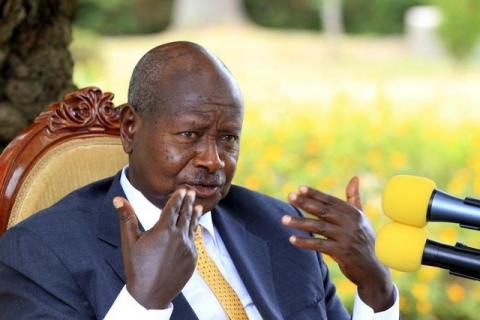Advertisement
Ugandan leader says orders military to quell disorder in country's west
KAMPALA (Reuters) - Ugandan President Yoweri Museveni said on Thursday he had ordered security forces into the Rwenzori region near the border with Democratic Republic of Congo (DRC) to stem a descent into lawlessness there since February's elections.
The Rwenzori area overwhelmingly voted for the opposition in the Feb. 18 presidential and parliamentary elections. Museveni won the presidential election with 60 percent of the vote.
His main rivals rejected the results with Kizza Besigye, who came second with 35 percent of the vote, describing the election as a sham because of what he called a biased official electoral body, widespread rigging and intimidation by security personnel.
Deadly clashes between locals in the Rwenzori area and security personnel broke out in the days following the announcement of results.
"I have directed the army and the police to deploy heavily and ensure peace and security returns," Museveni said in a statement issued by his office.
At least 26 people have been killed and 10 others injured in the clashes that officials say are between supporters of rival candidates in the elections.
But the opposition has said the insecurity was likely being stoked by the government to punish the region for shunning Museveni and other ruling party candidates.
The statement said Museveni visited the area on Wednesday and met local people as he tried to assess the scale of the instability in the region and weigh a government response.
"We can’t entertain banditry and we can’t negotiate with bandits. They either come out or we shall get them,” he said.
According to the statement, area residents told Museveni that "criminals and bandits" were coming down from nearby mountains to terrorize villages in low-lying areas.
Some villagers had abandoned their homes due fear of being attacked, fleeing to towns which have a greater presence of security personnel, the statement said.
The Rwenzoris have a history of unrest. The Allied Democratic Forces (EDF), an Islamist rebel group with links to al Qaeda operated from the area in the late 1990s and early 2000s.
The ADF was eventually driven out and forced into the jungles of eastern Democratic Republic of Congo, where they still have bases.
(Reporting by Elias Biryabarema; Editing by George Obulutsa and Mark Heinrich)



















Add new comment